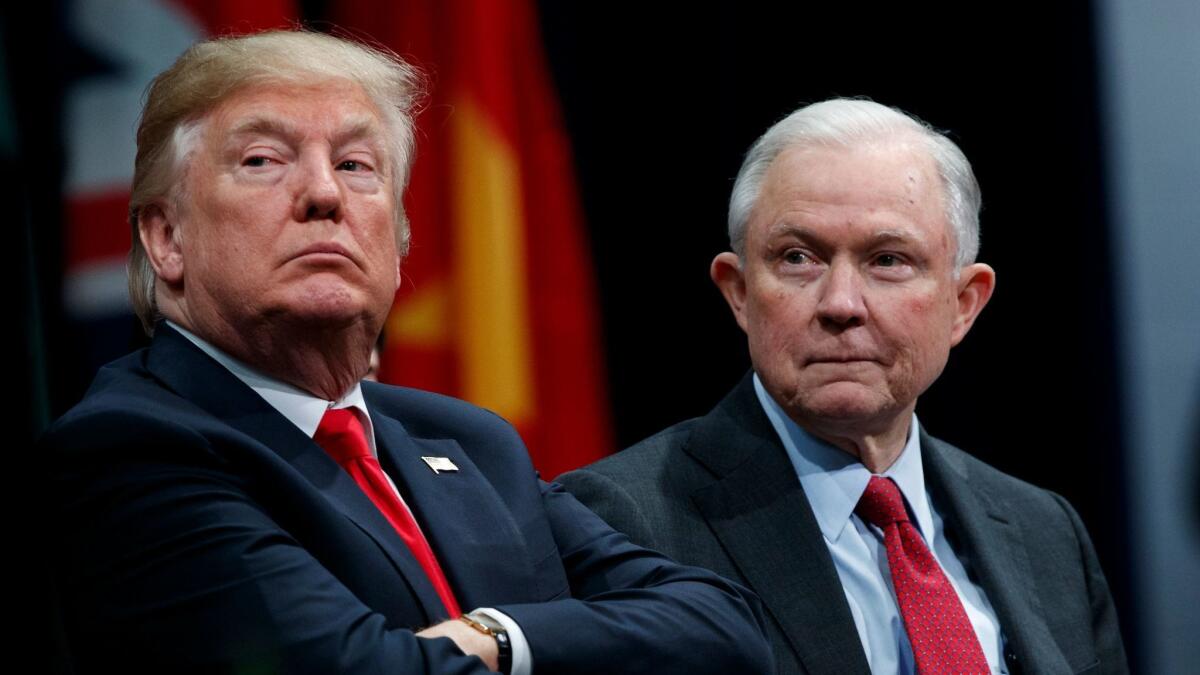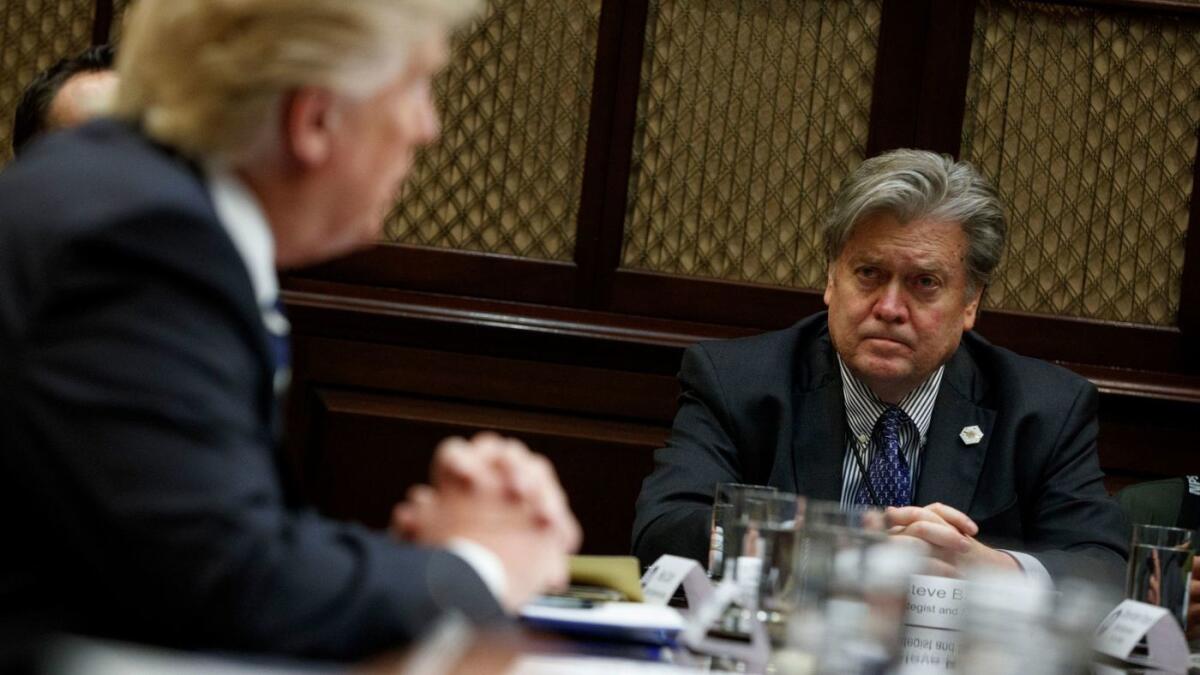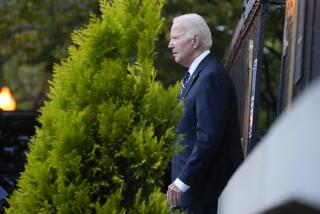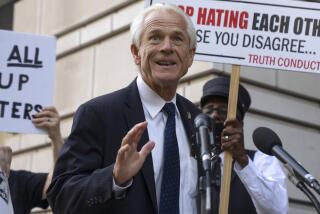Special counsel interviewed Atty. Gen. Jeff Sessions in Russia case

Atty. Gen. Jeff Sessions, who played a key role in several controversies shadowing President Trump, was questioned for several hours last week by the special counsel’s office investigating Russian interference in the 2016 presidential campaign.
Sessions is the first known member of Trump’s Cabinet to be interviewed in the criminal inquiry, which is seeking to determine whether Trump or any of his aides assisted the Russian campaign effort or were involved in alleged obstruction of justice during the subsequent FBI investigation.
The attorney general could provide an eyewitness account to special counsel Robert S. Mueller III about several key episodes under scrutiny, including Trump’s interactions with campaign foreign policy aide George Papadopoulos, who offered to arrange meetings with senior Kremlin officials, and Trump’s decision to fire FBI Director James B. Comey.
“Sessions is kind of everywhere,” said Susan Hennessy, a national security and governance fellow at the nonpartisan Brookings Institution. “If you are conducting a thorough investigation, who are the people you absolutely need to talk to? Trump is one of those people. Sessions is another.”
The sit-down with Sessions is the latest evidence that Mueller’s high-stakes investigation is reaching an advanced stage, although its final outcome is unclear.
Mueller already has arranged to question Stephen K. Bannon, who was Trump’s campaign manager and later chief strategist at the White House until he was fired in August. Mueller also is expected to seek an interview with Trump in coming weeks.
Papadopolous and former White House national security advisor Michael Flynn have pleaded guilty to lying to the FBI and are cooperating with prosecutors. Trump’s former campaign chairman, Paul Manafort, and his deputy have pleaded not guilty to multiple charges.
A Justice Department spokesman confirmed that Sessions met with Mueller’s team last week but declined to say what was discussed. The special counsel’s office declined to comment.
Trump downplayed news of the interview, which first appeared in the New York Times, while talking with reporters Tuesday in the Oval Office.
“I’m not at all concerned. Not at all,” he said, adding he had not spoken to Sessions about the interview.

The development emerged the day after Sessions said the Justice Department was investigating why five months of text messages between Peter Strzok, a senior FBI agent, and Lisa Page, an FBI lawyer, had disappeared.
The pair, who reportedly were in a romantic relationship, initially worked on the special counsel’s team. But Strzok was reassigned last summer after an inspector general’s investigation discovered that other texts between them included some critical of Trump, as well as of Democrats. Page had already left the team.
Sessions said Monday that investigators would “use every technology available” to recover the missing phone texts. The FBI blamed a technical problem but Republicans suggested the possibility of a coverup.
“One of the biggest stories in a long time,” Trump tweeted.
Ironically, Strzok apparently was not enthusiastic about the Russia investigation. Sen. Ron Johnson (R-Wis.) released some of the couple’s other texts on Tuesday, including one in which the FBI agent wrote he was hesitant to join Mueller’s team in part because of his own “gut sense and concern that there’s no big there there.”
Follow live coverage of the Trump administration on Essential Washington »
Sessions was an early and impassioned Trump supporter and surrogate during the presidential campaign. He was the first U.S. senator to support the flamboyant New York business mogul, vouching for Trump’s credentials as a conservative hard-liner on immigration, a core part of his message.
After his upset win, Trump nominated Sessions to serve as attorney general, making him the country’s top law enforcement official.
But Trump bitterly criticized Sessions after he abruptly recused himself in March from supervising the Russia investigation, without first telling the president. Sessions withdrew after news reports revealed he had failed to notify Congress about his own meetings with Russia’s ambassador.
His position and proximity to the president during the campaign, the transition and Comey’s firing could make him a crucial witness.
On the day before he fired Comey in May, Trump summoned Sessions and Deputy Atty. Gen. Rod Rosenstein to the White House and asked their opinions about whether to fire Comey. They said Comey had mishandled the investigation into Hillary Clinton’s emails during the campaign, and the White House initially cited letters from them to justify Comey’s dismissal.
Two days later, Trump undercut them by telling a TV interviewer that he already had decided to fire Comey before the meeting and that “this Russia thing” was on his mind when he made the decision. In the uproar that followed, Rosenstein appointed Mueller to lead the investigation in an effort to protect it from political interference.
In recent months, Rosenstein has publicly defended the special counsel despite Republican criticisms that the investigation is fueled by a political agenda. Rosenstein, who also talked to Mueller’s team last summer, continues to supervise Mueller’s investigation.
In several Senate hearings, Sessions has refused to say whether Trump mentioned the Russia investigation in the Oval Office conversation about Comey because the president may choose to assert executive privilege to keep the information confidential.
“I am protecting the right of the president to exert it if he chooses,” Sessions told the Senate Judiciary Committee in June.
But that argument likely won’t work with Mueller’s investigators, said Peter Zeidenberg, a former federal prosecutor who was part of special counsel Patrick Fitzgerald’s investigation of a leak in 2003 that revealed the identity of a covert CIA operative.
“I believe that he would have to answer all questions,” Zeidenberg wrote in an email.
In recent weeks, Trump has trained his anger on the FBI and in particular Deputy Director Andrew McCabe, a holdover from Comey’s tenure and a target of attacks from conservatives.
McCabe has planned to retire in March, when he becomes eligible for his full pension benefits. But Sessions reportedly pressured FBI Director Christopher A. Wray, whom Trump appointed to replace Comey, to force McCabe out immediately.
On Tuesday, Trump denied a report on Axios that Wray threatened to quit as FBI director rather than fire McCabe.
“He didn’t at all. He did not even a little bit,” Trump said. Axios said it stood by its story.
Twitter: @chrismegerian
ALSO
Rep. Devin Nunes plays defense for Trump by going on hard offense against Justice Department
UPDATES:
4:15 p.m.: This article was updated with additional details about the Russia inquiry and a separate Justice Department investigation into missing text messages.
This article was originally published at 8:35 a.m.
More to Read
Get the L.A. Times Politics newsletter
Deeply reported insights into legislation, politics and policy from Sacramento, Washington and beyond. In your inbox three times per week.
You may occasionally receive promotional content from the Los Angeles Times.








